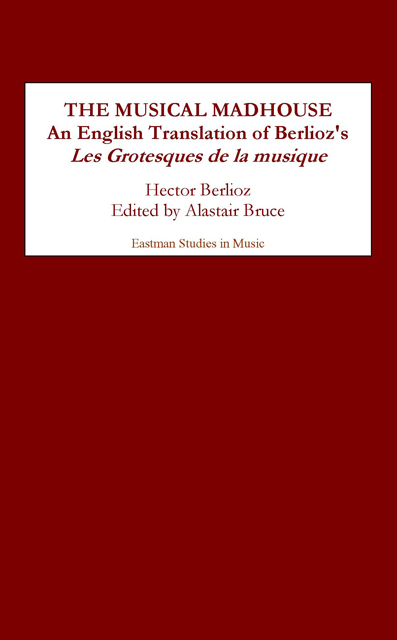Scientific correspondence: plombières and baden, 1st letter
Published online by Cambridge University Press: 21 March 2023
Summary
To the Editor in Chief of the Journal des Débats
Plombières—The Vosges—The piscine—Pleasure trips—Visit to Mlle. Dorothée—The peasants of the Vale of Ajol—The Emperor
Plombières, 24 AugustMonsieur,
A horizontal position is manifestly the most favourable for exercising one’s intelligence and expanding one’s mind, and it’s easy to see why. Our brain is the boiler that produces the steam we call thought, which propels and so often derails the train of human affairs; our blood is the boiling water which is transformed into steam—any physiologist will tell you so. The more freely the liquid flows in the boiler, the more steam, or thought, it will generate.
Voltaire was ill in bed when he wrote Candide, but enjoyed robust health when he set to work on the Henriade.
Bernardin de Saint-Pierre is said to have brought a hammock back from the Indies, which he liked to lie in while doing his writing; that was where he dreamed up his delightful masterpieces Paul et Virginie and The Indian Cottage. Later when he concocted his Harmonies of Nature, in which he tries to explain the phenomenon of the tides by the melting of the polar ice, the hammock was the worse for wear and he no longer used it.
J.-J. Rousseau was lying stretched out at the foot of a tree in the Forest of Vincennes when he improvised his famous Prosopopoeia of Fabricius, but he was doubtless standing when he wrote the comedy Narcissus or the Self-Lover and several chapters of his Dictionary of Music.
Tempted by these illustrious examples of the procedure’s effectiveness, I’ve often thought of hanging by my feet when I feel drained of spirit and intelligence. Only the fear of not being able to let myself down again has held me back. But I know three or four imbeciles to whom I wouldn’t mind applying this form of inspiration, just for forty-eight hours.
Anyway, I was lying in the pine forest by the old castle at Baden when I read the letter in which you were kind enough to complain of my silence and inactivity. Maintaining my horizontal position, I at once began to compose a most lively and interesting response, eloquent, passionate, clear but distinctive in style, and full of striking and erudite detail.
- Type
- Chapter
- Information
- The Musical MadhouseAn English Translation of Berlioz's <i>Les Grotesques de la musique</i>, pp. 81 - 93Publisher: Boydell & BrewerPrint publication year: 2003



